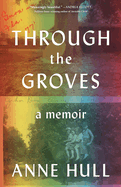
Pulitzer Prize-winning journalist Anne Hull's vivid memoir, Through the Groves, re-creates a 1960s childhood among Florida's citrus trees, compassionately tracing how the nuclear unit broke apart, and how she came to accept her sexuality. The Central Florida orange groves where, as a girl, Hull rode along with her father--a fruit buyer for a juice processing company--were magical. "A dirt road took us there" is the memoir's matter-of-fact yet evocative first line. Her father's territory was a frontier all theirs to explore--and during a more innocent time, when no one considered the consequences of cigarettes or pesticides.
However, Hull was aware of her parents' unhappiness, especially as her father's alcoholism progressed. After their divorce, her mother took her and her brother to live with her maternal grandmother, "Damie," and then with a new stepfather named Ted. Hull effectively reinhabits her childhood perspective to bring these figures to life. The narrative speeds up through Hull's teen years and ends with her starting a journalism fellowship at Harvard. The time span allows her to track her reconciliation with her father and her sexual identity. Hull had always been a tomboy, but not until her freshman year of college, when she kissed a female colleague from her Christmas-break restaurant job, did she realize she was a lesbian.
Development, including the construction of Disney World, led to the vast orange groves Hull remembers being cut down. Like childhood, they are lost forever, but memory can, fleetingly, bring them to life again. --Rebecca Foster, freelance reviewer, proofreader and blogger at Bookish Beck

